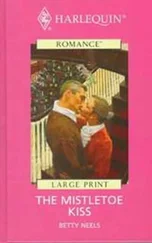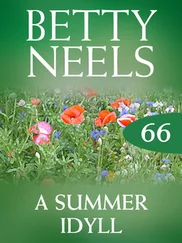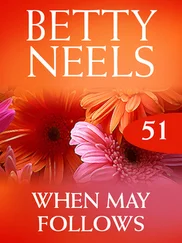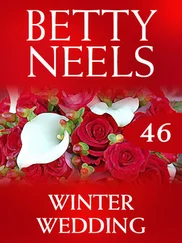Her hostess smiled broadly. ‘Lor’ no, Miss Serena, they’m good as gold and proper little loves, we wouldn’t be without ’em. You’ll see, when you’m wed and ’as little ’uns to rear.’
Serena tried to imagine herself with six small children, and somehow the picture was blurred because deep in her bones something told her that Laurens wouldn’t want to be bothered with a houseful of children to absorb her time—and his. He would want her for himself… The thought sent a small doubt niggling at the back of her mind, for she loved children; provided she had help she was quite sure she could cope with half a dozen, but only if their father did his share too, and Laurens, she was sure, even though she knew very little about him, wasn’t that kind of man. Disconcertingly, a picture of his cousin, lolling against the bed in his well-worn tweeds, crossed her thoughts; she had no doubt that he would make an excellent father, even though he did strike her as being a thought too languid in his manner. And probably he was already a parent. He was, after all, older than Laurens and must have settled down by now. She dismissed him from her mind, bade the happy mother and her offspring goodbye, and departed to make her second visit—a more difficult one—the organist’s wife had lost a small baby since Serena had been home last, it had been a puny little creature with a heart condition which everyone knew was never going to improve, but that hadn’t made it any easier for the mother. Serena spent longer there than she had meant to do, trying to comfort the poor woman while she reflected how unfair life could be.
It was surprising how quickly the weekend flew by, and yet, looking back on it as she dressed on the Monday morning, Serena saw that it had been a tranquil, slow-moving period, with time to do everything at leisure. As she made up her pretty face she found herself wishing that she wasn’t going back to Queen’s, to the eternal bustle and rush of the Accident Room, the hurried meals and the off duty, when one was either too tired to do anything but fall into one’s bed, or possessed of the feverish urge to rush out and enjoy oneself. But if she didn’t go back she wouldn’t see Laurens. She tucked back a stray wisp of hair and stood back to inspect her person; she was wearing a short-sleeved silk blouse which exactly matched the deep clotted cream of her pleated skirt, whose matching jacket she left on the bed with her gloves and handbag, for she still had the breakfast to get. She put on the kettle, skipped into the dining-room and tuned the radio in to the music programme and went back to the stove, trying out a few dance steps to the too-loud music as she cracked eggs into a bowl. She dropped the last one on to the floor when a voice behind her said almost apologetically: ‘I must take the blame for that, but the front door was open and although I rang the bell the music—er—drowned it, I fancy.’
She had whirled round and trodden in the egg as she did so. She said:
‘Damn!’ and then: ‘Good morning, Doctor van Amstel, you’re early,’ giving him the briefest of smiles.
If he was put out by his cool reception he allowed nothing of it to show but said mildly: ‘Yes, I’m sorry for that, too, but Laurens was so anxious that I should be on time.’ His unhurried gaze took in the apron she had tied untidily round her slim waist and moved on to take in the singing kettle and the bacon sizzling in the pan. ‘I’ll come back in half an hour, shall I?’ He gave her a lazy grin and sauntered towards the door just as Mrs Potts trotted in. Showing no surprise at the sight of a very large strange man in her kitchen, she said briskly: ‘Good morning. You’ll be the cousin, I’m sure. How very early you must have got up this morning, you poor boy. You’ll have breakfast with us, of course, it’ll be ready in a minute.’
Serena dished up bacon and put another few slices in. She felt all at once exasperated; she had been rude and inhospitable and the poor man had presumably had no breakfast; after all, he was driving her back. She said contritely: ‘I’m so sorry—I was surprised—I think I must have lost my wits. This is Doctor Gijs van Amstel, Mother—my mother, Doctor, and this is my father,’ she added as her parent joined them. She left them to talk while she got on with the toast, peeping once or twice at the doctor. He dwarfed her father both in height and breadth, his massive head with its pale hair towering over them all. He appeared to be getting on very well with her mother and father and something about his manner made her wonder if her first impression of him had been wrong—perhaps he wasn’t a junior partner at all. Her arched brows drew together in a frown as she pondered this; there was so much she didn’t know about Laurens and this man standing beside her.
They left directly after breakfast, with the entire family waving goodbye from the door and an odd housewife or so from the nearby cottages waving too for good measure. The car bumped a little going up the lane and the doctor said easily: ‘Sorry about the car—I really must do something about it.’ He slowed a little as they turned into the wider road. ‘But I must get Laurens settled first. His car’s a write-off, I’m afraid.’
‘Was it his fault?’
He didn’t look at her. ‘Yes, but I believe his solicitor may be able to prove mitigating circumstances.’ Something in his voice caused Serena to keep silent, but when he went on: ‘Laurens has already ordered a new car,’ she exclaimed: ‘Another E-type Jag?’
‘Yes—a car with great pulling power, I have discovered—especially where girls are concerned.’
Serena’s lovely face was washed with a rich pink. ‘What an offensive remark!’ she uttered in an arctic voice. ‘Just because you’ve got an old Mini…’ she stopped, aware that she was being even more offensive.
‘With no pulling power at all?’ he was laughing at her. ‘Too true, Miss Potts,’ and then to surprise her, ‘I wonder why you dislike me?’
‘Disl…’ Serena, not usually flustered, was. ‘I don’t—that is, I don’t know you—how could I possibly… I’ve no idea what you’re talking about.’
‘No? Have you read Samuel Butler?’
‘No—not to remember. A poet, wasn’t he—seventeenth century. Why?’
“‘Quoth Hudibras, I smell a rat; Ralpho, thou dost prevaricate.’”
The pink, which had subsided nicely, returned. ‘I’m not prevaricating—well, perhaps, a little.’
‘That’s better. I always feel that one can’t be friends with anyone until one has achieved honesty.’
She asked, bewildered: ‘Are we to be friends?’
‘We’re bound to see quite a lot of each other, are we not? I think we might make the effort—I’m quite harmless, you know.’
She wondered if he was; his manner was casual and he talked with an air of not minding very much about anything—on the other hand, he read an early English poet well enough to quote him. She inquired: ‘Where did you learn to speak such good English?’
They were going slowly through Dorchester, caught up in the early morning traffic. He shrugged. ‘Oh, I don’t know—school, and visits here, and university.’
‘A Dutch university?’
‘Yes.’ And that was all he said, much to her annoyance; for all his casual air he was hardly forthcoming. Never one to give up, she tried again. ‘Do you know this part of England well?’
‘Moderately well. I came here when I was a boy.’ His lips twitched with amusement, he added: ‘Visiting, you know.’
She didn’t know, which was so annoying, but she gave up after that and sat in silence while he urged the little car along the road to Puddletown and beyond to Wimborne. They were approaching that small town when he observed; ‘You’re very quiet.’
Читать дальше












